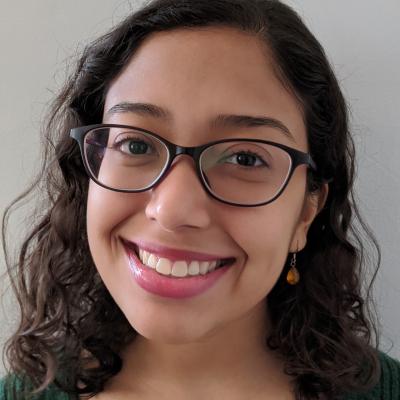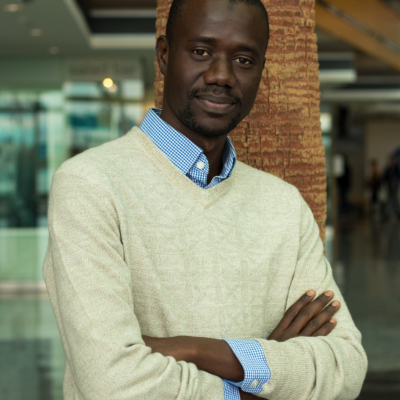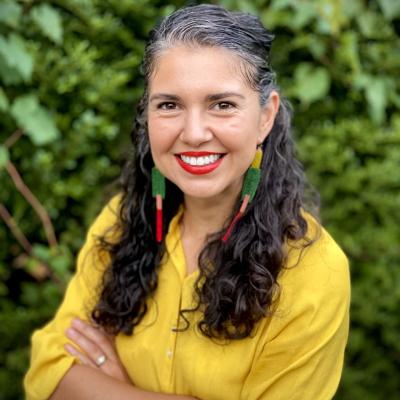Nine Scholars Recognized for the 13th Annual Student and Early Career Council Dissertation Research Funding Awards
SRCD congratulates the 2021 Student and Early Career Council Dissertation Funding Awardees.
Established in 2008 by the SRCD Student and Early Career Council (SECC), the Dissertation Research Funding Awards (DFAs) are given to dissertation research proposals that are exceptionally noteworthy and display a strong potential to contribute to the field of child development. Each recipient is awarded $2,000 USD to use for research costs related to the proposed dissertation project.
SRCD is pleased to recognize the following 9 scholars as the 2021 awardees.
Meg Bishop, University of Texas at Austin
“Sexual Identity Development Milestones, Bias-Based Victimization, and Mental Health across Three Cohorts of Sexual Minority People”
Meg Bishop is a doctoral candidate in human development and family sciences at the University of Texas at Austin, under the mentorship of Dr. Stephen Russell. Meg’s research leverages life course and intersectional approaches to examine the relations between sexual identity development timing, minority stress, and health among sexual and gender minority people. In their dissertation, Meg explores whether and how the timing of sexual identity development milestones such as the age of first same-sex attraction, self-realization of a sexual minority identity, and disclosure have changed across sociohistorical time among three cohorts of sexual minority youth and three cohorts of sexual minority adults, and how milestone timing is differentially related to minority stress and mental health across cohorts. By elucidating the ways that timing of sexual identity development is related to stress and health in contexts of rapid social change, this research has the potential to contribute to prevention and intervention programs aimed at eliminating health disparities between sexual minority people and their heterosexual peers.

Alison Chavez, University of Massachusetts, Boston
Alison Chavez is a doctoral candidate in clinical psychology at the University of Massachusetts Boston, where she works with Dr. Alice Carter. Alison’s research focuses on increasing access to culturally responsive diagnostic and intervention services for young children from marginalized backgrounds who are at risk for delays or challenges in social-emotional and behavioral functioning. Her dissertation examines how relational (working alliance) and participatory (family-centered practices) components of service delivery in Part C Early Intervention (EI) are associated with caregiver reports of satisfaction with services and parenting self-efficacy, two outcomes that have implications for continued engagement in services and long-term child developmental functioning. She will also explore how these associations are moderated by child social-emotional and behavioral functioning. By clarifying mutable relational mechanisms and their links to child functioning, this research has the potential to highlight the importance of addressing child social-emotional and behavioral functioning within EI and to inform interventions that can promote caregiver engagement.

Jorge Cuartas, Harvard University
Jorge Cuartas is a doctoral candidate in Education at Harvard University working with Dr. Dana McCoy in the Settings for Early Education and Development lab. Jorge’s research focuses on early childhood development in low- and- middle-income countries (LMICs), the consequences of physical punishment and other forms of violence on early neural, cognitive, and social-emotional development, and the design, implementation, and impact evaluation of parenting and violence prevention programs. For his dissertation, Jorge will (1) assess the consequences of physical punishment on children’s cognitive and social-emotional development in multiple LMICs and (2) design and implement a violence prevention parenting program in Colombia called Apapacho (which means to hug the soul in Náhuatl language). In the short term, Jorge hopes to gain more skills in developing and implementing interventions to reduce violence against children. In the long term, he envisions producing high-quality research, disseminating scientific evidence widely, and working alongside policymakers and other key stakeholders to protect young children from violence and promote their healthy development globally.

Yatma Diop, Michigan State University
“Investigating Concurrent and Longitudinal Relations between Mother-child Verbal and Nonverbal Interactions and the Language Abilities of Wolof-learning Toddlers in Rural Senegal”
Yatma Diop is a Ph.D. candidate in Child Development in the Department of Human Development and Family Studies at Michigan State University under the supervision of Dr. Lori Skibbe. His dissertation investigates how Wolof speaking caregivers in Senegal use physical communication involving showing warmth through physical touch and face-to-face communication such as mutual gaze and child-directed speech when interacting with their toddlers. He considers whether variability in interactional patterns relates to concurrent child language outcomes. He also examines whether, within closely related communities, there are subgroups of caregivers who use different language input quality features (e.g., lexical, syntactic, and interactional complexities), and how such differences relate to Wolof children’s language abilities concurrently and one year later. The findings will provide a better understanding of how non-Western caregivers interact with their children and will also contribute to developing more cohesive language development theories.

Andrea Fields, Columbia University
“Neurobiological mechanisms underlying emotional lability during toddlerhood”
Andrea Fields is a doctoral candidate in Psychology at Columbia University working with Dr. Nim Tottenham in the Developmental Affective Neuroscience Laboratory. Her work investigates how children learn from and adapt to their caregiving environments. Specifically, her research examines how early caregiving experiences, such as parental psychopathology and placement instability, influence children’s emotional development and the underlying neurobiology. Andrea’s dissertation will directly build on her graduate research thus far by characterizing limbic functioning and the neurobiological correlates of emotional lability in toddlers. Knowledge of these biological and behavioral characteristics during toddlerhood, a developmental window when affective systems undergo rapid change and engage in significant learning about socio-emotional contexts, is a fundamental step in understanding why events experienced in early life have an outsized effect on affective development. Throughout her career, Andrea plans to build a line of programmatic research to answer questions concerning how early caregiving experiences impact emotional behavior through changes in the developing brain. She hopes her work will inform our understanding of the normative trajectory of early brain functioning and the importance of child-caregiver relationships.

Alicia Mendez, Rutgers University
“The Intergenerational Transmission of Intrafamilial Sexual-Abuse Related Trauma: An Exploration of Family Stories Between Mothers and Daughters”
Alicia Mendez is a doctoral candidate in social work at Rutgers University under the mentorship of Dr. Cassandra Simmel. Her research examines how policies are implemented at the organizational and client-level within agencies that focus on trauma-informed care, and parent-infant mental health practices. Her dissertation builds off this experience and qualitatively examines the intergenerational transmission of trauma. Through this study she will examine how mothers who experienced childhood sexual abuse transmit their trauma to their late-adolescent aged daughters who have not experienced sexual or physical abuse. Using a narrative inquiry approach, she will analyze the stories that mothers and daughters share in describing and making sense of their experiences and relationship. She hopes this work will highlight the nuances found in these unique mother-daughter relationships and to inform future studies of intergenerational trauma, clinical practice interventions, and policies aimed at family preservation and strengthening bonds between caregiver and child. Along with her research, she also prioritizes activism within higher education. She holds various service positions in which she collaboratively works to attenuate the systemic inequities that scholars of color and other minoritized students face.

Lauren Pagano, Loyola University Chicago
“Advancing Children’s Engineering Learning through Tinkering and Digital Storytelling”
Lauren Pagano is a doctoral candidate in Developmental Psychology at Loyola University Chicago, working under the mentorship of Dr. Catherine Haden. Her research examines children’s memory and learning during and after informal learning experiences. Much of her work has investigated how children learn about engineering during hands-on tinkering activities in museums, libraries, and homes, with a focus on the role of parent-child interactions and program design. In response to the COVID-19 pandemic and motivated by the growing prevalence of digital technology use in children’s lives, her dissertation study examines how digital storytelling activities during and after tinkering may support children’s engineering learning processes. In the study, some families are asked to narrate and reflect on their tinkering activities as though they are recording a video for a digital audience. The dissertation will explore whether families who create digital stories may talk, remember, and learn more about engineering than families who do not. Lauren aims for her research to provide actionable information to parents, educators, and museum practitioners about how tinkering and digital storytelling activities can be used to support children’s science, technology, engineering, and mathematics (STEM) learning processes.

Jessica Seddon, University of Guelph
“A Randomized Controlled Trial of Emotion Focused Family Therapy for Parents of Children with Mental Health Difficulties”
Jessica Seddon is a doctoral student in Clinical Child and Adolescent Psychology at the University of Guelph under the mentorship of Dr. Kristel Thomassin. Jessica’s research program broadly focuses on children’s emotional development and the role of emotion skills in the development and maintenance of child psychopathology. She is particularly interested in the role of parenting and the family system within this context. Jessica’s dissertation seeks to test the efficacy of Emotion Focused Family Therapy (EFFT) as a parent intervention for child mental health difficulties. EFFT is a promising intervention that aims to teach parents advanced skills to support their child’s emotional development with the goal of improving the psychological functioning of the affected child and potentially the family more broadly. To this end, Jessica will develop a manualized protocol for EFFT and conduct a randomized controlled trial to test treatment efficacy and long-term maintenance of treatment gains for key parent and child outcomes, including parent and child emotional and psychological functioning, emotion parenting, and parent-child co-regulation. If found efficacious, EFFT could serve as an efficient and time-limited transdiagnostic treatment for child mental health difficulties that can enact long-lasting improvements in child and family functioning within an overburdened mental healthcare system.

Grace Lee Simmons, The University of Alabama
“Social Motivation Intervention Leveraging E-learning (SMILE) for Children with Autism”
Grace Lee is a Clinical Child Psychology Doctoral Candidate at The University of Alabama (Advisor: Dr. Susan White). She graduated from Davidson College where she studied Psychology and Music and has worked for four years on a multisite examination of a theater-based intervention targeting social competence in youth with autism (SENSE Theatre; NIH Grant: R01MH114906). Her research focuses on understanding social impairments in children with autism and other neurodevelopmental disorders. She is also interested in designing, implementing and disseminating psychosocial interventions targeting these social impairments, particularly interventions integrating creative skills (music, art, etc.). Grace Lee’s dissertation will design and evaluate an innovative telehealth intervention targeting social amotivation (i.e., disinterest in engaging with peers and developing friendships) in children with autism: Social Motivation Intervention Leveraging E-Learning (SMILE). She will develop the SMILE treatment manual and associated intervention materials integrating stakeholder feedback from an advisory panel and subsequently implement SMILE in a waitlist-control design. In the future, she hopes SMILE might be integrated into existing psychosocial intervention protocols, allowing clinicians to engage children susceptible to attrition in therapy due to geographic, financial, or personal barriers; modify treatment content to best suit their client’s needs; target specific impairments; and potentially augment treatment effects.